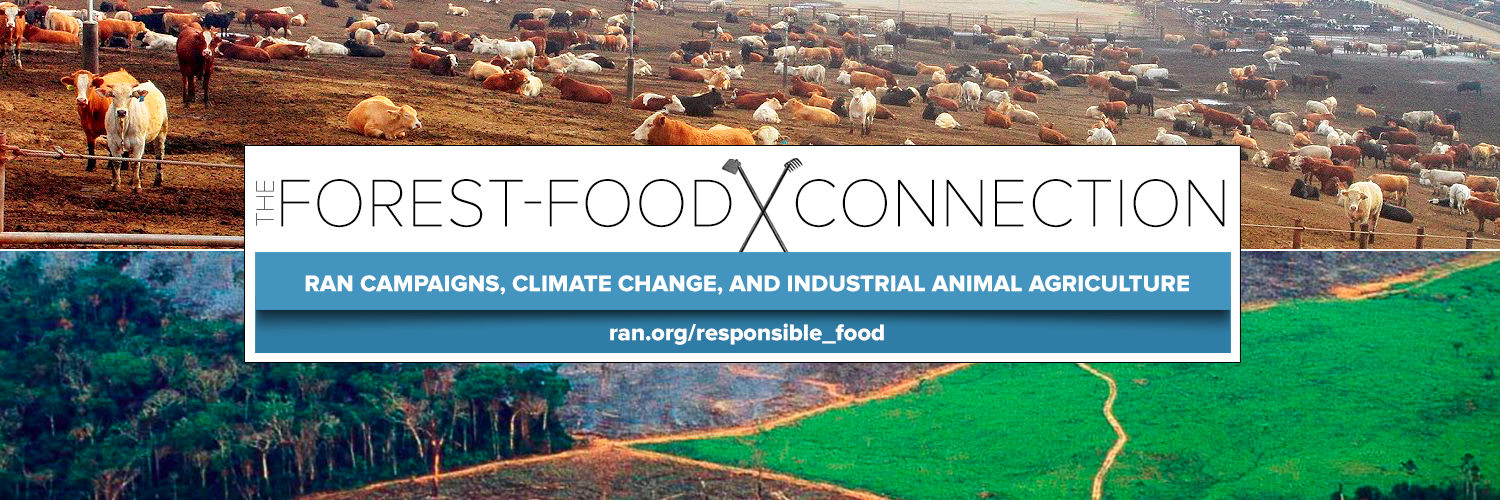Did you know that despite endless aisles of food in the grocery store, and 50 different cereals to choose from, a small handful of companies decide what kind of food you can buy and how farmers can produce it? It’s true. Bad farm policies and unchecked corporate consolidation have driven out much of the diversity in the marketplace and food system, creating powerful agribusiness giants who control much of what ends up on our plate.
Big Ag controls over 83% of all foods in the US marketplace, dictating what is available in the market. [122] Thanks to US farm policy, which subsidizes wheat, corn and soy––all crops that Big Ag harvests––it is increasingly difficult for small family farmers to compete. US agricultural policy puts the interests of food processors—such as Cargill, Tyson, Kraft and ConAgra—above the needs of independent farmers. [123]
Dependent on the markets that large corporations create, family farmers do not have many options for local and sub-regional markets to sell their produce. Because of this dynamic, in order to survive, many family farms are pushed into contracts to grow for companies like Monsanto. Unfortunately, these deals leave farmers with very little flexibility in what food they grow, how they produce and their ability to own seeds. [124]
In the United States, animal agribusiness is a $125 billion industry controlled by a handful of corporations, which include agro-chemical and seed companies, which produce pesticides, fertilizer, seeds and other products; processing companies that buy and process livestock; food manufactures that process the meat into specific products such as frozen entrees; food retailers, including supermarkets and restaurant chains; transportation systems, including railroads and shipping lines; pharmaceuticals; farm equipment such as tractors and irrigators. [125]
Globally, the production trend we are seeing is the vertical integration of many commodities, including palm oil and beef, and the governance of the supply chain on the hands of a small number of large scale enterprises. This vertical integration of the supply chain means that large scale producers and processors are having greater control and coordination of activities along the value chain and using contract farming as a growth strategy. [126]
The handful of big meat companies driving factory-style production in the U.S. do not consider themselves U.S. companies. Indeed, they are global corporations, some with foreign parent companies, and operate in many countries that are part of the Trans-Pacific Partnership (TPP) free trade agreement. A disturbingly small number of companies control the U.S. meat market. They are all global players operating in multiple sectors and multiple countries, including: JBS USA (beef, pork and poultry), Cargill (beef, feed), Tyson Foods (poultry, beef), Shuanghui/Smithfield (pork). Meat production is increasingly becoming a center of global agribusiness.
Take action right now to demand that global meat giant Tyson Foods transform its present irresponsible production model that has dire consequences for animals, people and planet. Given that RAN is already targeting Conflict Palm Oil laggard Sara Lee for refusing to adopt a responsible palm oil policy [127] despite years of campaigning, and that Tyson Foods owns Sara Lee, Tyson Foods needs to hear from you today. It is one of the 4 biggest meat companies in the world with numerous popular US brands, and values its brand and consumer reputation as much as it’s bottom line.
An additional challenge aside from corporate influence is the fact that the meat lobby is one of the strongest in the country. Big Ag spends millions of dollars a year to control US ag policy. Thanks to our Farm Bill, the US ag policy that governs food and farming, big livestock producers are incentivized to continue business as usual. The Farm Bill benefits factory farms in many ways: commodity programs encourage over-production of artificially cheap feed (below cost of production), which give them an advantage over grazing; GIPSA, which deals with competition policy, has been routinely de-funded and weakened over the years so that it can’t effectively represent the interests of independent farmers. Not to mention the millions of US tax dollars that get allocated every year to expand industrial meat operations both domestically and abroad.
Another example: in early 2015 shortly after the release of the US Government’s Dietary Guidelines Advisory Committee’s scientific report, which urges Americans to eat less meat to protect the environment, Rep. Robert Anderholt threatened the funding of the USDA. [128] Shortly thereafter a powerful block of 30 senators sent a letter to the heads of the USDA, lobbying to get the USDA to reverse the findings. [129] Over 87% of the 30 senators had received campaign contributions from the agriculture, meat, and/or dairy industry within the last several years. [130]
While around 1.3 billion people worldwide still depend upon animal husbandry, most of them in developing countries, the number of livestock graziers is falling. [131] The livestock sector is becoming industrialized and meat-producing companies are expanding. The profits of these companies are the results of high direct and indirect subsidies, the direct ones from the state while the indirect ones are built on the environmental damage caused by factory farming and the use of livestock feed—costs that society pays instead of the companies. [132]
Until we reclaim our food system from corporate control and pressure governments around the world, from the US to China to Brazil, to end subsidies, tax incentives and other policies that promote the growth and export of industrial animal agriculture and the trade in its products, our climate, human rights, and animal welfare will continue to suffer the consequences.
[122] United States Department of Agriculture. “2011 Resource Management Survey”
[123] http://www.foodandwaterwatch.org/about-foodopoly/
[124] http://www.centerforsocialinclusion.org/ideas/food-systems/
[129] http://www.thune.senate.gov/public/index.cfm/press-releases?ID=2cbe42da-eac8-48c1-a820-44a392b57195
[130] http://maplight.org/
